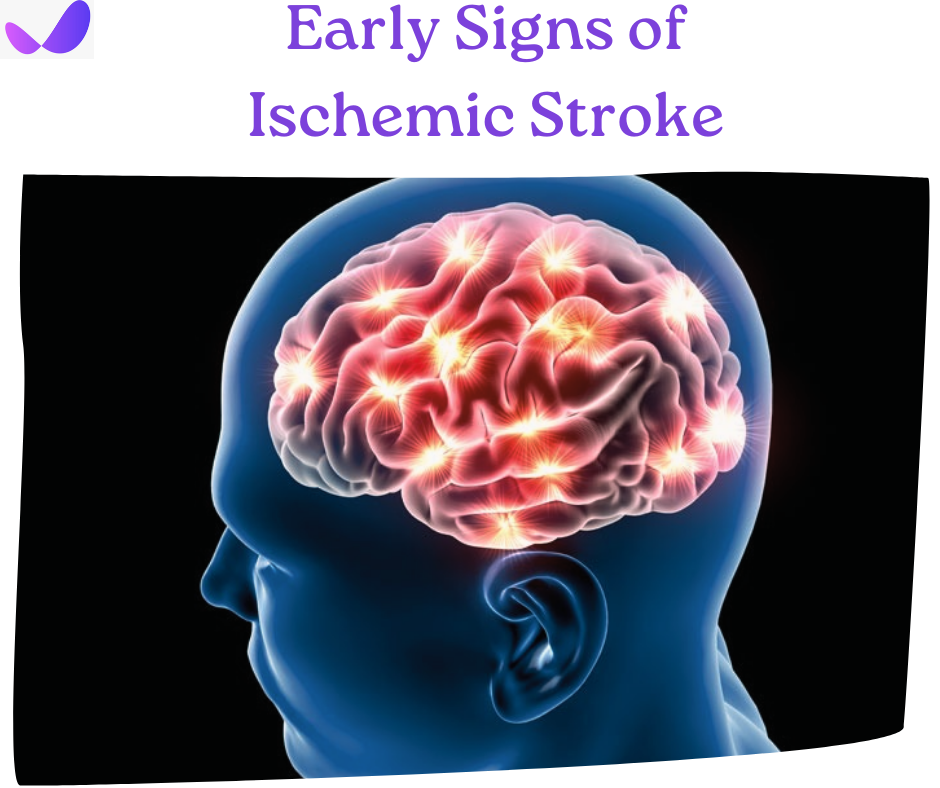Ischemic stroke is a medical emergency that occurs when blood supply to a part of the brain is blocked, often leading to severe consequences. In this blog post, we will understand the key aspects of ischemic strokes, like what they are, their causes, and most importantly, how to acknowledge the early symptoms for prompt medical attention.
What is Ischemic Stroke?
Ischemic stroke also called brain ischemia or cerebral ischemia. It is one of three forms of stroke like (brain ischemia, hemorrhagic stroke and transient ischemic attack (TIA)). It is a type of stroke that occurs when a blood vessel supplying blood to the brain is obstructed by a blood clot or blockage in the vessels. Without a proper blood supply, brain cells begin to die, which can lead to brain damage or even death.
Causes of Ischemic Stroke
The Ischemic strokes can be caused by various factors, including:
- Atherosclerosis: Buildup of fatty deposits within the arteries.
- Blood Clots: Clots formation that block blood vessels.
- Small Vessel Disease: Damage to the small blood vessels in the brain.
- Heart Conditions: Conditions inclusive of atrial traumatic inflammation can make a contribution to clot formation.
Early Symptoms of Ischemic Stroke
1) Sudden Weakness or Numbness
Abrupt weakness or numbness, usually confined to one side of the body, is a standard indication of an ischemic stroke. This may be felt while trying to carry or hold items, and it is able to be particularly apparent inside the face, arm, or leg.
2) Trouble Speaking or Understanding Speech
After an ischemic stroke, a person may have trouble speaking or understanding. It's crucial to pay attention to common indicators such as slurred speech, bewilderment, or trouble finding the correct words.
3) Vision Problems
A potential ischemic stroke may also be indicated by visual problems. A disturbance in blood flow to the eyes might be indicated by blurred vision, double vision, or abrupt visual disruptions.
4) Severe Headache
A sudden, intense headache without a known reason may indicate an imminent stroke, even though headaches are common. If the headache is accompanied by other symptoms, this is very important.
5) Dizziness or Loss of Balance
It can be concerning to feel lightheaded or to suddenly become uncoordinated. It could mean that the brain's blood supply is impaired, in which case quick medical intervention is needed.
Importance of Early Detection
- Time-sensitive Treatment Options: Timely therapeutic options, including thrombolytic therapy or clot-busting medications, can help break blood clots and restore blood flow to the brain when an ischemic stroke is detected early. When these treatments are given soon after the onset of symptoms, they work best.
- Preventing Further Damage: Getting medical care as soon as possible not only increases the likelihood of recovery but also helps stop more brain injury. Early management can lessen cognitive decline and physical impairments that are among the long-term effects of an ischemic stroke.
Risk Factors for Ischemic Stroke
- Hypertension: Ischemic strokes are primarily associated with high blood pressure. One can greatly lower the risk of stroke by maintaining regular blood pressure monitoring and management.
- Diabetes: Diabetes increases the risk of cardiovascular problems, such as ischemic strokes, in its sufferers. Keeping blood sugar levels in check is crucial to reducing this risk.
- High Cholesterol: Increased blood artery blockages are a result of atherosclerosis, which is exacerbated by elevated cholesterol levels. Controlling cholesterol levels can be achieved by leading a healthy lifestyle and diet.
- Smoking: Blood clots and atherosclerosis are two conditions that are significantly influenced by smoking. Quitting smoking is one of the best strategies to reduce your risk of an ischemic stroke.
- Obesity: Excess weight and obesity are associated with other health issues, such as diabetes and hypertension, which raise the risk of ischemic strokes. It's critical to maintain a healthy weight in order to avoid strokes.
- Family History: An individual may be more susceptible if they have a family history of strokes or cardiovascular disease. Understanding family medical history enables preventative measures and routine examinations.
Conclusion
In conclusion, early detection of ischemic stroke is critical for prompt intervention and better results. Those who are aware of the risk factors, symptoms, and causes of stroke are better equipped to prevent strokes by taking preventative action. To ensure that an ischemic stroke is effectively treated, it is imperative that you seek medical help as soon as possible if someone suffers any of the symptoms listed above.






